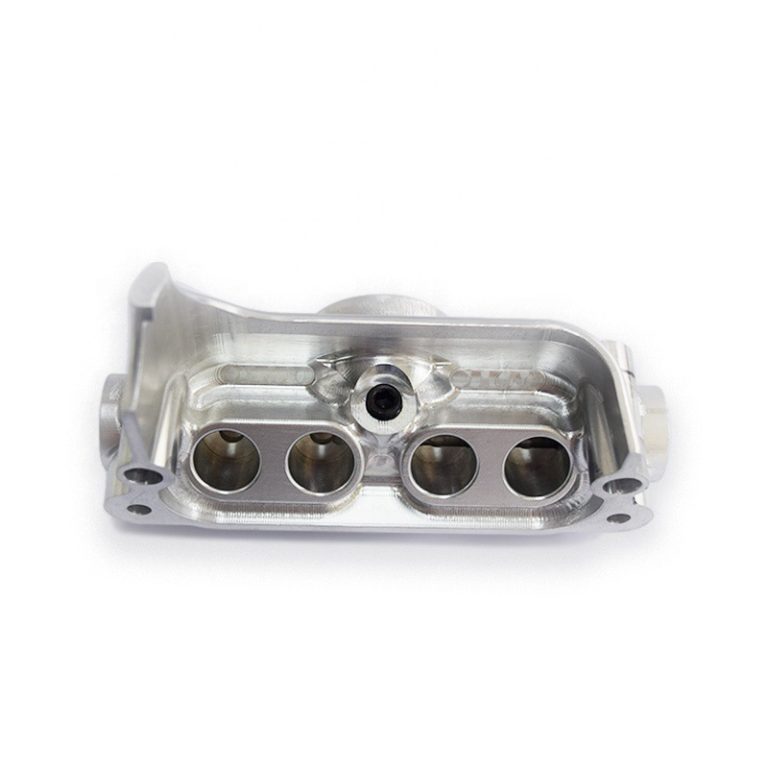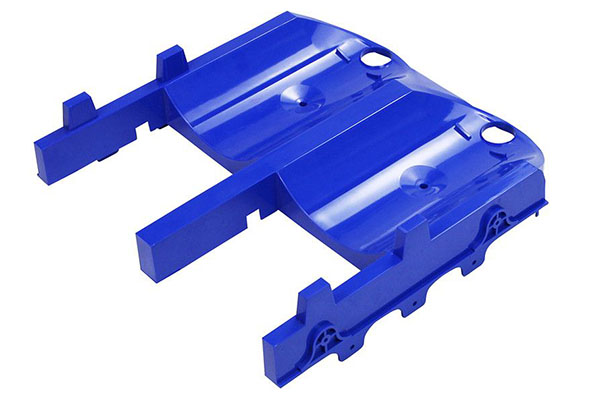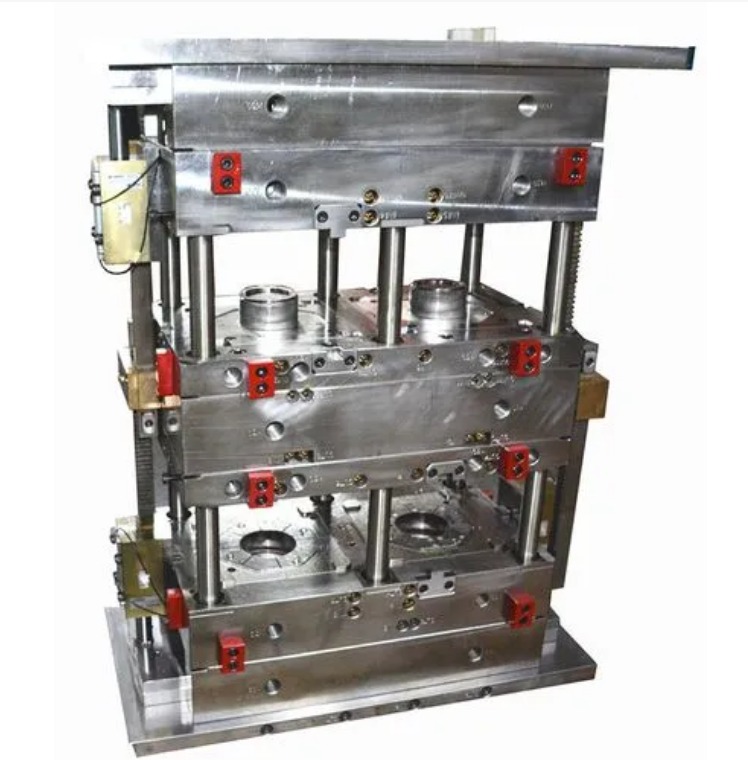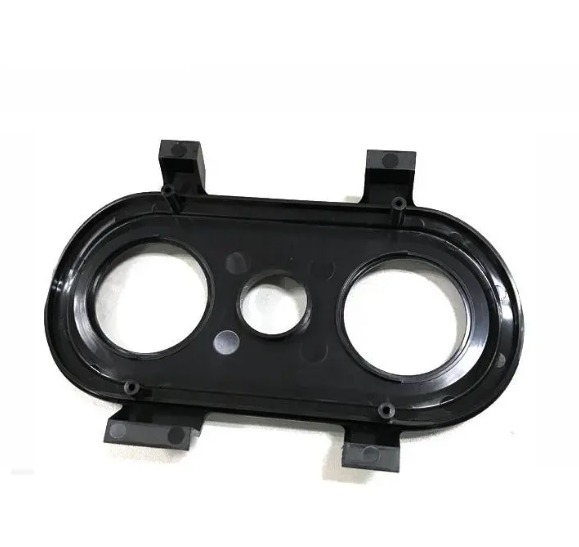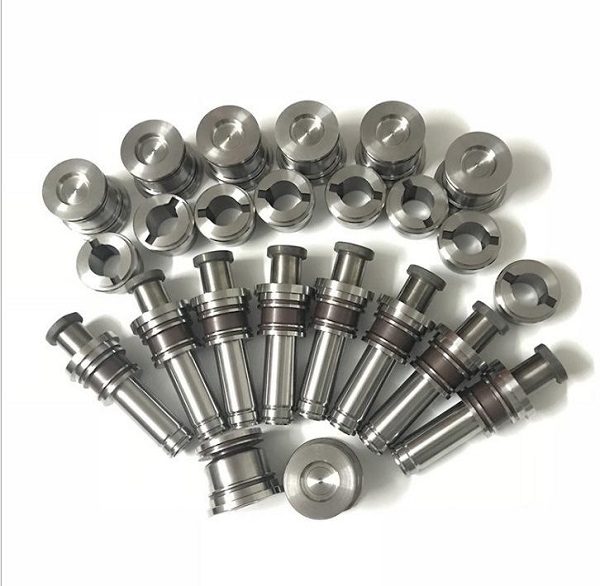Introduction
Selecting the right materials for plastic moulds is a crucial decision that can significantly impact the quality, durability, and cost - effectiveness of the final plastic products. In the plastics manufacturing industry, the mould material serves as the foundation upon which the plastic parts are shaped, and its properties can determine everything from the surface finish of the product to its resistance to wear and tear during the moulding process.
The wrong choice of material can lead to a host of problems. For instance, if a mould material has insufficient heat resistance, it may deform during the high - temperature injection moulding process. This can result in inconsistent product dimensions and poor - quality finishes, leading to a high rate of product rejects. On the other hand, choosing an overly expensive material without considering the product's requirements can drive up production costs unnecessarily, making the product less competitive in the market.
With the wide variety of materials available for plastic moulds, such as different grades of steel, aluminum, and even some specialized alloys, it can be a daunting task for manufacturers to make the right choice. In the following sections, we will explore the key factors that need to be considered when selecting materials for plastic moulds, helping you make an informed decision for your production needs.
Key Factors to Consider When Selecting Plastic Mould Materials
Mechanical Properties
Strength
The strength of a plastic mould material is a fundamental property. Different types of moulds have varying strength requirements. For injection moulds that produce large - scale plastic parts like automotive bumpers, high strength is crucial. These bumpers are often large in size and need to be formed in one piece. During the injection process, the mould cavity is filled with molten plastic under high pressure. A mould with insufficient strength may deform or even break, leading to production disruptions and costly repairs. According to industry standards, for such large - scale injection moulds, the material should have a tensile strength of at least 800 - 1000 MPa. High - strength materials like P20 steel, which has a tensile strength in the range of 850 - 1050 MPa, are commonly used in these applications. The strength of the mould material directly affects its ability to withstand the internal pressure generated during plastic injection, ensuring the integrity of the mould and the accurate formation of the plastic part.
Hardness
Hardness determines how well a mould can resist wear and maintain its shape over time. Moulds that produce abrasive plastic products, such as those containing glass fibers, require materials with high hardness. For example, when manufacturing plastic parts for electrical appliances that often contain reinforcing glass fibers, the mould material needs to be hard enough to prevent rapid wear. Tool steels like D2, with a Rockwell hardness of around HRC 60 - 62, are ideal for these applications. In contrast, for moulds producing soft and non - abrasive plastics like polyethylene for simple packaging products, materials with relatively lower hardness can be used. The lower hardness materials are often more cost - effective and easier to machine. Some common materials for such applications are aluminum alloys, which have a Brinell hardness in the range of 60 - 150 HB, depending on the specific alloy composition.
Toughness
Toughness is the ability of a material to absorb energy and resist cracking under impact. In plastic moulding, especially in processes like compression moulding where there can be sudden impacts during the closing of the mould, toughness is essential. For instance, when making large - scale plastic furniture parts using compression moulding, the mould may experience significant impact forces. A mould made of a brittle material without sufficient toughness is likely to crack or break. High - toughness materials like 55NiCrMoV7 steel, which is a high - strength hot - work die steel, are often used in these scenarios. It has excellent impact resistance and can withstand the dynamic forces during the moulding process. This steel has a high yield strength of ≥830 MPa and a good elongation rate of ≥10%, which contribute to its high toughness.
Thermal Properties
Heat Resistance
Plastic moulds are often exposed to high temperatures during the plastic - forming process. For example, in injection moulding of engineering plastics such as polycarbonate (PC), which has a high melting point, the mould must be able to withstand temperatures up to 250 - 300°C without deforming. Materials like H13 hot - work tool steel, which has excellent heat - resistance properties and can maintain its mechanical properties at high temperatures, are suitable for such applications. It can resist softening and deformation even when exposed to temperatures close to 550 - 600°C. On the other hand, for moulding plastics with lower melting points like polyethylene (PE) which melts around 120 - 140°C, materials with relatively lower heat - resistance requirements can be used. Some aluminum alloys can be used for PE moulding as they can handle the lower temperature environment well and offer good thermal conductivity at the same time.
Thermal Conductivity
Thermal conductivity affects how quickly heat is transferred within the mould. Moulds with high thermal conductivity can cool the plastic parts faster, reducing the cycle time of the moulding process. Copper - based alloys, such as beryllium copper, have a high thermal conductivity of about 150 - 250 W/(m·K). They are often used in moulds where rapid cooling is required, like in the production of small, thin - walled plastic parts. In contrast, steel materials generally have a lower thermal conductivity, around 30 - 50 W/(m·K) for common tool steels. However, their strength and other mechanical properties make them more suitable for applications where high strength is a priority over extremely fast cooling.
Chemical Resistance
During plastic molding, the molten plastic and any additives or release agents can chemically react with the mould material. For example, when molding PVC plastics, hydrogen chloride (HCl) gas is released during the heating process, which can corrode the mould. Materials with good chemical resistance, such as stainless steels like 316L, are often used. 316L stainless steel contains chromium and nickel, which provide excellent resistance to a wide range of chemical substances, including the corrosive HCl gas. It is highly suitable for PVC moulding applications. Other materials like some specialized nickel - based alloys also offer high chemical resistance and can be used in demanding chemical environments during plastic molding.
Cost Considerations
The cost of mould materials can vary significantly. For example, high - performance tool steels like M42 high - speed steel, which is known for its high hardness and wear - resistance, are relatively expensive, with a price per kilogram that can be several times higher than that of common carbon steels. However, for applications where high precision and long - term durability are crucial, such as in the production of complex electronic components' plastic moulds, the higher cost may be justifiable due to the low defect rate and long service life of the mould. On the other hand, for large - scale production of simple plastic products like disposable plastic cups, cost - effective materials like some low - grade aluminum alloys or ordinary carbon steels may be chosen. These materials are much cheaper but still meet the basic requirements of the moulding process for such simple products. Balancing cost and performance requires a careful assessment of the product requirements, production volume, and the overall budget of the manufacturing project.
Comparison of Common Plastic Mould Materials
Steel
Steel is one of the most widely used materials for plastic moulds, and it comes in various types, each with its own unique characteristics.
P20 Steel
P20 steel is a pre - hardened plastic mould steel. It has a relatively high strength with a tensile strength in the range of 850 - 1050 MPa. This steel offers good machinability, which means it can be easily shaped into complex mould geometries. It also has moderate hardness, usually around HRC 28 - 32, which provides decent wear resistance for general plastic moulding applications. In terms of cost, P20 steel is moderately priced, making it a popular choice for a wide range of plastic products, such as household appliance parts and small - to - medium - sized plastic toys.
H13 Steel
H13 is a hot - work tool steel. It excels in heat resistance, being able to maintain its mechanical properties at high temperatures up to around 550 - 600°C. This makes it ideal for moulding high - temperature plastics like polycarbonate. H13 has a high hardness of around HRC 48 - 52 and excellent toughness. However, it is more expensive than P20 steel due to its superior performance characteristics. It is commonly used in the automotive industry for moulding engine - related plastic parts that need to withstand high - temperature environments during the injection moulding process.
D2 Steel
D2 is a high - carbon, high - chromium tool steel. It has an extremely high hardness, reaching up to HRC 60 - 62. This makes it highly resistant to wear, which is crucial for moulds producing abrasive plastic products, such as those with glass fiber reinforcements. D2 steel also has good dimensional stability. But it is relatively brittle compared to some other steels, and its cost is on the higher side. It is often used in the production of plastic moulds for precision electronic components where long - term wear resistance and high - precision moulding are required.
| Steel Type | Strength (MPa) | Hardness (HRC) | Heat Resistance (°C) | Cost | Applicable Scenarios |
| P20 | 850 - 1050 | 28 - 32 | Moderate (up to about 300 - 350) | Moderate | Household appliance parts, small - medium - sized plastic toys |
| H13 | High (yield strength ≥830) | 48 - 52 | High (up to 550 - 600) | High | Automotive engine - related plastic parts, high - temperature plastic moulding |
| D2 | High | 60 - 62 | Moderate | High | Precision electronic component plastic moulds, abrasive plastic product moulds |
Aluminum
Aluminum alloys are also popular materials for plastic moulds, especially in certain applications where their unique properties offer distinct advantages.
Advantages: Aluminum has a low density, which makes the moulds lighter in weight. This is beneficial when handling and operating the moulds, especially in large - scale production setups. It also has excellent thermal conductivity, with some aluminum alloys having a thermal conductivity of around 150 - 200 W/(m·K). This high thermal conductivity allows for faster cooling of the plastic parts during the moulding process, reducing the cycle time. For example, in the production of small, thin - walled plastic packaging containers, the quick cooling provided by aluminum moulds can significantly increase production efficiency.
Disadvantages: However, aluminum alloys generally have lower strength and hardness compared to steels. Their tensile strength is typically in the range of 200 - 400 MPa, and the hardness is relatively low, with a Brinell hardness of 60 - 150 HB depending on the alloy. This means they are more prone to wear and deformation under high - pressure or abrasive conditions.
Applications: Aluminum is often used in the production of plastic moulds for low - pressure applications, such as the production of simple plastic toys, packaging products, and some consumer electronics housings where the mechanical requirements are not extremely high, but the advantages of light weight and fast cooling are highly valued.
Copper - Based Alloys
Copper - based alloys, like beryllium copper, have some unique characteristics that make them suitable for specific plastic mould applications.
Characteristics: Beryllium copper has a high thermal conductivity, ranging from 150 - 250 W/(m·K), which is even higher than most aluminum alloys. This makes it an excellent choice for applications where rapid heat transfer is crucial. It also has good corrosion resistance and reasonable strength.
Applicable Scenarios: It is often used in moulds for producing small, high - precision plastic parts where fast cooling is required to ensure dimensional accuracy. For example, in the production of plastic connectors for electronic devices, the high thermal conductivity of beryllium copper helps in quickly solidifying the plastic, reducing the chance of warping and ensuring tight tolerances.
Limitations: One of the main limitations of copper - based alloys is their relatively high cost. Beryllium copper, in particular, is more expensive than many steels and aluminum alloys. Additionally, they may not be as suitable for applications that require extremely high mechanical strength, as their strength levels are generally lower than those of high - strength steels.
Plastics (for Special Applications)
In some special cases, plastics can be used as mould materials.
Materials: Materials like epoxy - based plastics and some high - performance engineering plastics such as polyetheretherketone (PEEK) can be used for plastic moulds in specific scenarios.
Advantages: Epoxy - based plastics are relatively easy to mold into complex shapes. They are often used for making small, low - volume production moulds or for prototypes. They are cost - effective for these applications as they can be produced with less expensive tooling. PEEK, on the other hand, has excellent heat resistance, chemical resistance, and mechanical properties. It can withstand high temperatures and harsh chemical environments.
Applications: PEEK - based moulds are sometimes used in the aerospace or medical industries for molding small, high - precision plastic components that need to meet strict quality and performance requirements. For example, in the production of some medical implants' plastic prototypes, PEEK moulds can be used to ensure the accuracy and biocompatibility of the final product, as PEEK itself has good biocompatibility properties.
Yigu Technology's Insights
As a non - standard plastic metal products custom Supplier, Yigu Technology understands the significance of a balanced approach to material selection for plastic moulds. We believe that it's crucial to find the right equilibrium between material performance, cost, and the unique requirements of each project. When choosing materials, we always consider the specific mechanical and thermal properties needed for the plastic product. For example, if a client needs a mould for high - volume production of small, heat - sensitive plastic components, we might recommend an aluminum alloy for its fast cooling ability.
Cost is also a major factor in our decision - making process. We strive to provide cost - effective solutions without sacrificing quality. By carefully analyzing the production volume and the product's quality requirements, we can select materials that offer the best value for money.
Moreover, we are well - equipped to handle custom - made moulds. Whether it's a unique design or special material requirements, our team can meet the diverse needs of clients, ensuring that the final plastic moulds are tailored to perfection.
FAQ
1. What is the best material for plastic moulds if I'm on a tight budget?
For a tight budget, common carbon steels or low - grade aluminum alloys can be good options. Carbon steels are relatively inexpensive and can be used for simple moulding applications where high - end mechanical properties are not required. Low - grade aluminum alloys are also cost - effective, and they offer advantages like light weight and good thermal conductivity, which can be beneficial for certain plastic products such as simple packaging items. However, they may have lower strength compared to some other materials.
2. Can I use the same plastic mould material for different types of plastics?
It depends on the properties of the plastics. For plastics with similar processing temperatures and chemical characteristics, a single mould material might be suitable. For example, polyethylene (PE) and polypropylene (PP) have relatively low melting points and are not highly corrosive, so a material like P20 steel could potentially be used for moulding both. But for plastics with significant differences, such as PVC (which releases corrosive HCl gas during processing) and high - temperature plastics like polycarbonate, different materials are required. PVC moulds need materials with good chemical resistance like stainless steels, while polycarbonate moulds need heat - resistant materials like H13 steel.
3. How does the production volume affect the choice of plastic mould material?
For low - volume production, cost - effective materials with relatively lower performance characteristics can be chosen. For instance, epoxy - based plastics or 45 - steel can be used for small - scale production or prototypes. These materials are less expensive and easier to work with. For high - volume production, materials with high strength, hardness, and wear - resistance are preferred. High - speed steels or high - performance tool steels like H13 or D2 are often used. Although they are more costly upfront, their long service life and ability to maintain high - quality production over a large number of cycles make them more cost - effective in the long run.
